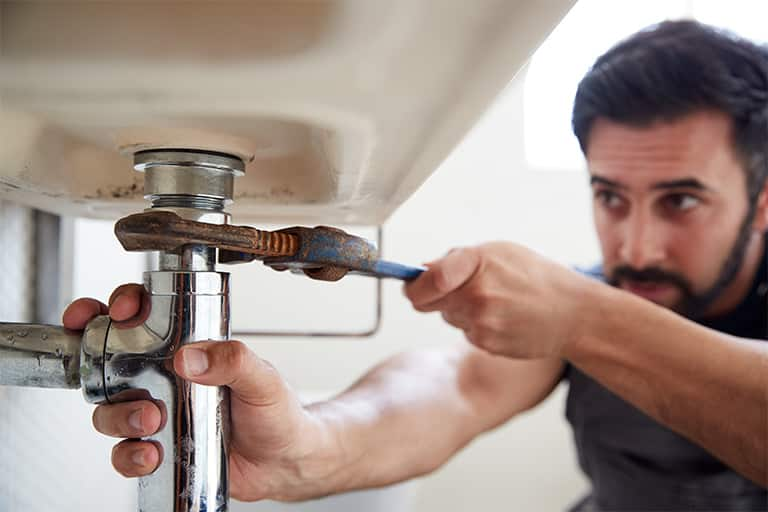Guide To Water Leak Detection In Your Home
Guide To Water Leak Detection In Your Home
Blog Article
We've stumbled upon this article on Hacks to detect leaks below on the internet and figured it made sense to discuss it with you on my blog.

The moment you find a leakage, calling your plumber for repairs is the best service. However, some tiny water leaks might not be visible. If you can not spot it with your nude eyes, here are some hacks that help.
Early discovery of dripping water lines can minimize a potential catastrophe. Aside from conserving you money, it will decrease the aggravation and aggravation.
Check Water Consumption
Examine your water expenses and also track your water intake. As the one paying it, you must discover if there are any kind of disparities. If you detect sudden changes, in spite of your consumption coinciding, it implies that you have leaks in your plumbing system. Remember, your water bill must drop under the very same range on a monthly basis. An abrupt spike in your bill shows a fast-moving leakage.
A steady increase every month, even with the exact same behaviors, reveals you have a slow leakage that's additionally slowly escalating. Call a plumber to completely check your residential or commercial property, specifically if you really feel a cozy location on your floor with piping underneath.
Examine the situation and evaluate
Home owners must make it a behavior to check under the sink counters as well as also inside closets for any kind of bad odor or mold and mildew growth. These 2 red flags suggest a leakage so punctual attention is needed. Doing regular inspections, even bi-annually, can save you from a major issue.
Examine the Water Meter
Every residence has a water meter. Checking it is a guaranteed manner in which aids you discover leaks. For starters, shut off all the water sources. Make certain nobody will purge, use the faucet, shower, run the cleaning maker or dish washer. From there, go to the meter and also watch if it will change. Considering that nobody is utilizing it, there need to be no activities. That suggests a fast-moving leakage if it relocates. Likewise, if you detect no changes, wait an hour or two and inspect back again. This suggests you may have a slow leakage that can even be below ground.
Asses Outside Lines
Don't fail to remember to check your exterior water lines also. Should water permeate out of the link, you have a loosened rubber gasket. One tiny leak can squander tons of water and also surge your water expense.
Do a Food Coloring Test
When it involves water intake, 30% originates from toilets. Examination to see if they are running correctly. Drop specks of food shade in the container and wait 10 mins. If the color in some way infiltrates your dish throughout that time without flushing, there's a leakage between the tank and dish.
More notably, if you understand your house is currently old, keep a watchful eye on your heating units, pipes, pipelines etc. Check for discolorations and deteriorating as most pipelines as well as appliances have a life span. They will likewise normally deteriorate due to damage. Don't wait for it to intensify if you suspect leaking water lines in your plumbing system. Call an expert plumber today so you don't end up with a dreadful mess in your home.
The moment you discover a leak, calling your plumber for repair work is the ideal solution. Some small water leaks might not be noticeable. Inspecting it is a proven method that assists you uncover leaks. One small leak can waste loads of water and increase your water bill.
If you suspect leaking water lines in your plumbing system, do not wait for it to rise.
How to Know If Your Home Has a Hidden Leak
Water Meter Reveals Inexplicable Water Usage
If you’d like to test whether or not there’s a leak somewhere in your home, you can do this using your water meter. Here is how to conduct the test:
Don’t use any water in your home for at least 30 minutes; this also means not turning on faucets or water-using appliances.
Go outside, and check your water meter for activity.
If your water meter shows that there was activity, even though no one was using any water, this proves that there is a leak in your home.Visible Mold or Mildew Growth
Leaks behind walls create moist, dark environments that allow mold and mildew to grow and thrive. Eventually, you might see mold growth forming on the wall closest to a hidden leak.
If mold is growing in an area that receives a high amount of moisture, such as a bathroom, it may simply be an indication that better ventilation is needed. However, if you see mold growth on a wall or the ceiling in an area where you would not expect, you probably have a hidden leak.
Musty, Mildew Odor
Sometimes you might not be able to see the mold or mildew that is growing as a result of a leak. However, the smell can give the problem away just as easily. If you catch a whiff of something musty, there’s a good chance that old water is collecting somewhere in your home that you can’t see.
Stained/Warped Walls, Ceilings, or Floors
When your home soaks up water, a variety of red flags can become visible, including ceiling stains, bubbling drywall, warped walls, and sagging floors. While these issues can be caused by excess humidity, they can also be signs that a pipe or plumbing connection has started leaking behind your walls.
Inexplicably High Water Bill
After a while, you get a general sense for what your water bill should be. If you own a pool or sprinkler system, your bill will tend to be higher during summer. However, if you receive a water bill that seems especially high, and you can’t figure out what caused it, then you may have a hidden leak somewhere that’s increasing your bill.
https://www.plumbingjoint.com/blog/2019/july/how-to-know-if-your-home-has-a-hidden-leak/

Do you like reading about Leaking water lines? Give feedback down below. We will be interested to listen to your opinions about this blog posting. In hopes that you visit us again later on. Those who liked our article kindly make sure you remember to share it. Many thanks for taking the time to read it.
Report this page